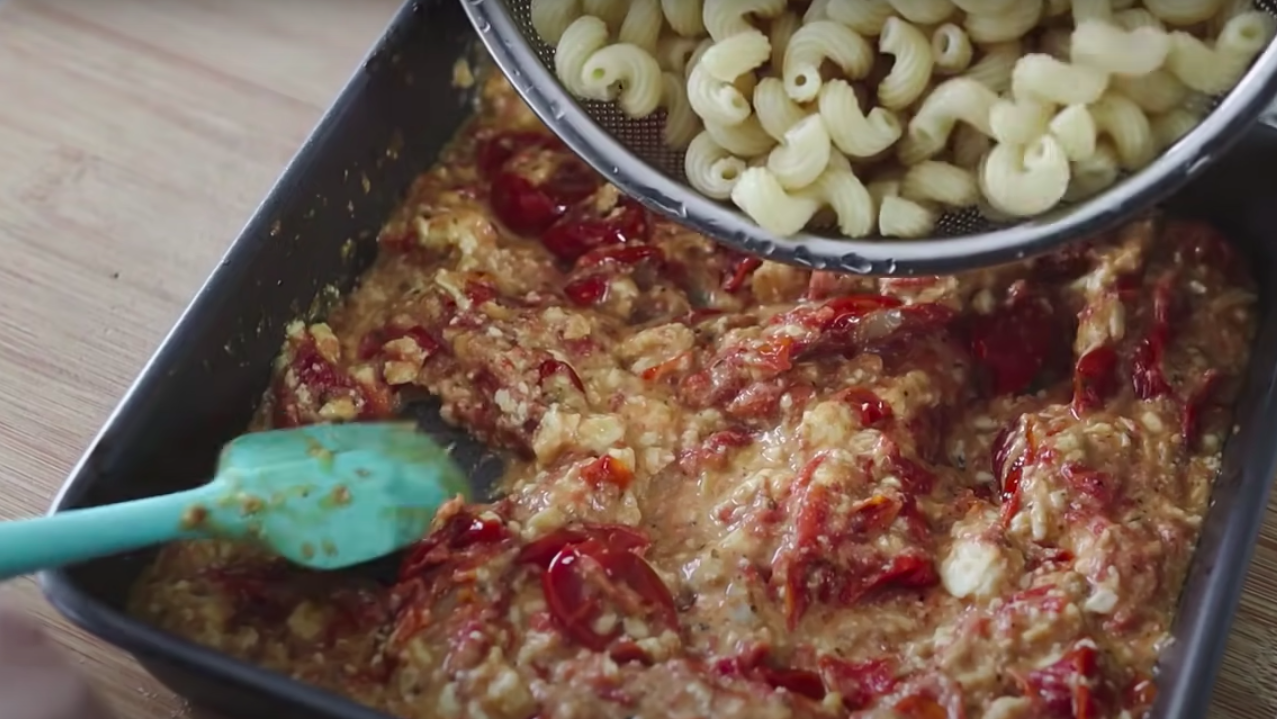Those Viral TikTok Recipes Have A Serious Carbon Footprint
An energy company analyzed each recipe by its carbon emissions.
TikTok has given us many blessings. A Dunkin'-drinkin' duck. Frozen honey that makes you poop lava. No-mess baking tricks. Potentially illegal pizza-ordering hacks. Unfortunately, some of those viral food-related videos also come with a serious carbon footprint per a study from Uswitch, an energy price comparison service.
In a press release sent to The Takeout, Uswitch explains that the company compiled a list of 47 trending dishes and 25 drinks, ranking the overall carbon emissions of each item. To finalize the ranking, Uswitch ran the food and drinks through a food emissions calculator, breaking each item down by ingredient-specific emissions. The calculator identifies the total grams of carbon dioxide equivalent (gCO2e) each food or drink produces.
For context, Uswitch explains that driving one mile emits 404 grams of carbon dioxide. Compare that to the meal with the highest total emissions—a cheeseburger—which produces a grand total of 5,768 gCO2e. (That's the equivalent of driving more than 14 miles, if you're paying attention.) Mozzarella sticks are in second place with total emissions of 2,346 gCO2e, followed by, perhaps surprisingly, banana bread, which is responsible for 2,332 gCO2e per loaf. Moving on down the list, TikTok's baked feta pasta dish is in fifth place with a total of 1,929 gCO2e, followed by hot chocolate bombs in sixth place.
Looking to reduce your carbon footprint? Per the study, the trending food releasing the least amount of greenhouse gas emissions is spicy pickled garlic. The recipe calls for 16 garlic cloves, hot sauce, thyme, and chili flakes and produces just 83 gCO2e. The second-lowest emitter? Corn ribs. For more stats, check out the full study here.
To be clear, these recipes have always had a high carbon footprint. Their presence on TikTok doesn't change that—although the viral nature of, say, feta pasta does suggest that home cooks may have upped their carbon footprint in the last year or so. The fact is that, if you're making burgers and feta pasta every day, you're going to increase your impact on the planet. This isn't necessarily a TikTok-specific problem; rather, it's an interesting way to think about our own cooking in general. In the meantime, if you want to take it easy on the viral recipes, we've got plenty of alternatives.
